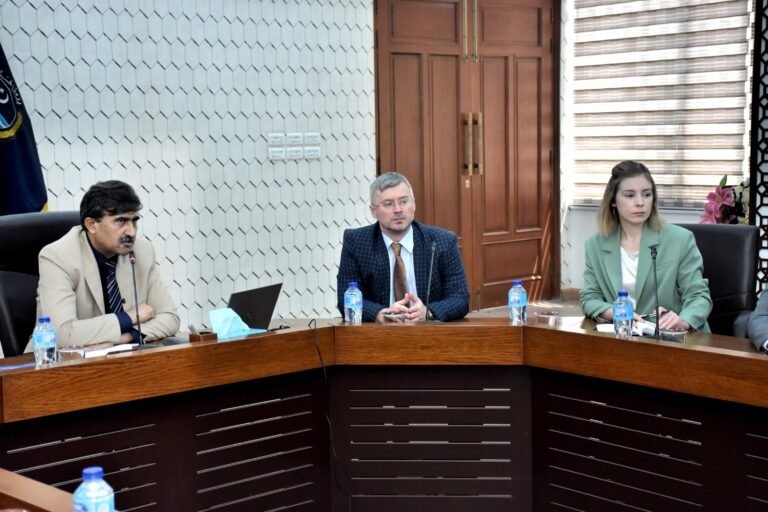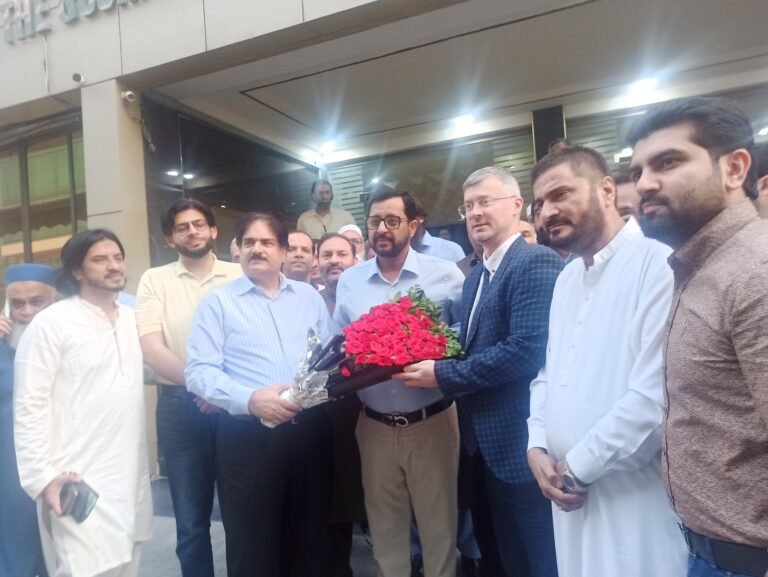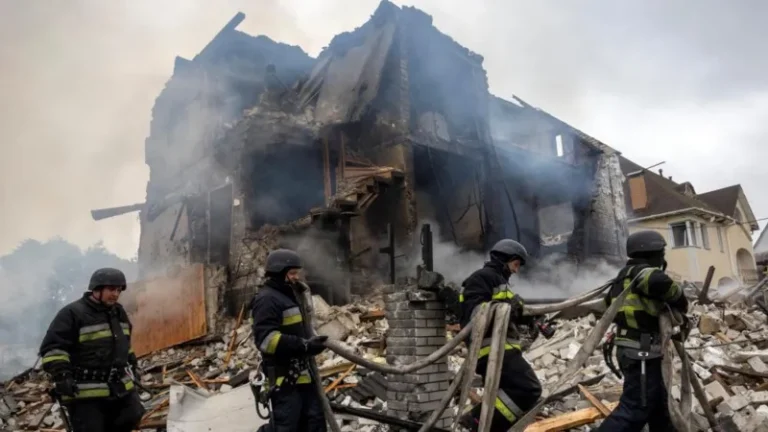Senator Mushahid thanks Moscow for its “positive neutrality” during recent India-Pakistan conflict
Pakistani Senator Mushahid Hussain Syed met Russian Foreign Minister Sergey Lavrov in Moscow on Saturday, expressing gratitude for Russia’s “positive neutrality” during the recent escalation between India and Pakistan.
The 40-minute bilateral meeting took place ahead of a broader gathering at the Eurasian Forum, where leaders from China, Turkiye, South Korea, and Cambodia were also in attendance.
Senator Mushahid, who was invited as the only Pakistani representative, delivered a keynote address at the forum, where he highlighted Pakistan’s desire for regional peace and greater Eurasian cooperation.
During the meeting, Senator Mushahid Hussain expressed appreciation for Russia’s stance of “positive neutrality” during the rising tensions between India and Pakistan. This neutrality stood in stark contrast to the escalating military operations between the two nuclear-armed neighbours.

The recent Pakistan-India conflict followed the deadly attack in Pahalgam area of Indian illegally occupied Jammu and Kashmir (IIOJK) on April 22, which killed 26 people.
While India blamed Pakistan for the attack, no conclusive evidence was provided. Islamabad denied the Indian claims and had called for an independent probe into the attack.
New Delhi’s subsequent actions and Pakistan’s tit-for-tat response escalated tensions and the two nuclear-armed South Asian neighbour thenengaged in their most intense military confrontation in decades that saw six Indian jets, including Rafale aircraft, downed by Pakstani forces.
Pakistan’s appreciation of Russia’s neutral position reflected its gratitude for Moscow’s refusal to take sides in the conflict.
In an interview with Russian media, Senator Mushahid commended Russia’s diplomatic efforts and reiterated Pakistan’s commitment to a multipolar world order, where diplomatic engagement outweighs military alliances.
“Pakistan stands ready to play an equal part in the peaceful development of Eurasia alongside Russia and China,” he stated.
Lavrov criticises Western alliances, particularly India’s role in QUAD
The discussion at the Eurasian Forum took a sharp turn when Lavrov condemned Western military alliances in Asia.
He specifically targeted India’s growing involvement in the US-led Quad, which includes Australia, Japan, and the United States. Lavrov’s criticism of the Indo-Pacific Strategy, which India is increasingly part of, was pointed: “This Indo-Pacific had never existed—NATO made up this term to drag India into their anti-China schemes,” he said.
Lavrov’s words struck a nerve with the 12-member Indian delegation, which was present at the forum. The Indian representatives, including members of the ruling Bharatiya Janata Party (BJP), were notably silent as Lavrov criticised joint military exercises within the Quad.
The remarks highlighted the growing divergence between India’s official stance on the Quad and the increasing military cooperation between India and the United States, which India itself had publicly downplayed as purely economic in nature.
On the diplomatic front however, India has contradicted US President Trump’s declaration about Washington’s role in achieving the ceasefire with Paksitan as well.
Lavrov also expressed concern over NATO’s attempts to re-enter Afghanistan, warning that NATO was looking for new points of entry into the region, four years after its chaotic retreat.
This critique was aimed at Western powers expanding their influence in Asia, which some see as an attempt to contain China and Russia.
Senator Mushahid’s comments echoed similar sentiments.
He expressed full support for Eurasian cooperation and rejected military alliances, such as the Quad and the so-called ‘Asian NATO’. “Military blocs destabilise the region and do not contribute to peace,” he said, reaffirming Pakistan’s opposition to military containment strategies.
Senator Mushahid’s support for Russia’s Eurasian Security Initiative, which advocates for “indivisible security” across the region, further solidified Pakistan’s alignment with Russia and China.
He reiterated that Pakistan is committed to working with both powers to build a peaceful and prosperous Eurasia.
“Russia and China, led by President Putin and President Xi Jinping, are building a peaceful and prosperous Eurasia—and Pakistan stands ready to be an equal partner in that journey,” he said.
Senator Mushahid also pointed out that while Pakistan had voiced strong opposition to military alliances, it was actively engaging in regional cooperation through forums like the Shanghai Cooperation Organization (SCO) and supporting initiatives that prioritise diplomacy over military escalation.
Lavrov, during his address at the forum, also warned against the growing military presence of NATO and its partners in Asia. His remarks targeted US and Western influence, urging nations to pursue regional cooperation that focuses on economic growth and security, rather than military confrontations.
His strong words were seen as an endorsement of Russia’s vision for a multipolar world order, one where cooperation, rather than military blocs, drives regional stability.
The forum concluded with a call from over 100 delegates to shift from military containment to a more inclusive, rules-based approach to regional cooperation.







